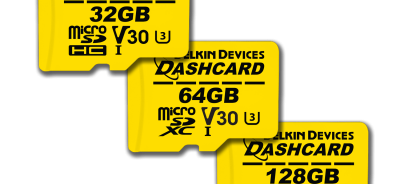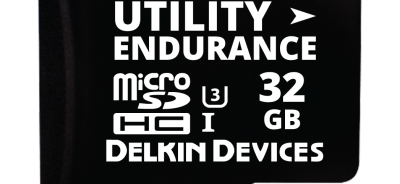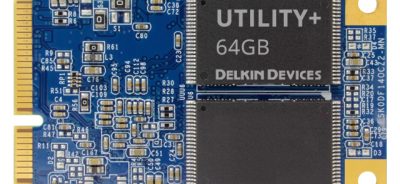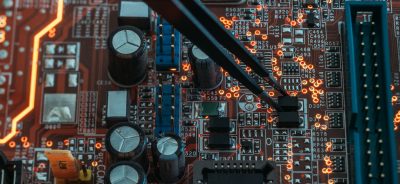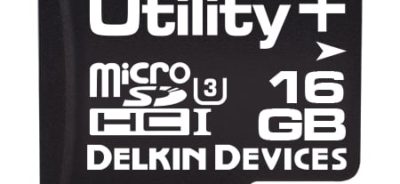How Delkin Helped One Customer Overcome SD Card Lifespan Concerns
The evolution of flash technology has been a good thing for developers and end users. However, it has created some complications. It has become more difficult to compare memory devices to determine which one is the best fit for a device and which will have the longest lifespan. Instead of simply choosing between SLC and MLC flash, developers and OEMs now have to consider a variety of options. These often include QLC, and TLC. This makes it more likely than ever before that they could miss out on the most reliable and efficient memory solution for their specific needs.
Similarly, it is no longer possible to rely on P/E—program and erase—cycles or TBWs—terabytes written—to differentiate between memory products. This information can form part of the picture when developers are making a decision. However, they are no longer informative enough to completely guide the choice of a flash memory product. Relying only on these parameters causes OEMs to overlook other factors that should be considered. One example is the WA—write amplification—rate. This can have a significant impact on the usefulness of a memory device. The WA rate describes how often a flash memory device only needs to use a small section of a block for storage, but instead uses the entire block. This wastes valuable storage space. If the WA rate is not good, the lifespan of a memory device will be shortened significantly. However, many developers are not aware that they should even consider this factor.
Flash Memory Types
For most developers working on industrial applications, only two kinds of flash have typically been considered: SLC and MLC. SLC stands for single-level cell. This kind of flash memory only stores one bit of data per cell. This means that it is the most reliable form of flash available. Because storing one bit of data per cell involves fewer charges, SLC NAND flash cards also have the longest lifespan of any kind of flash memory. Since it is also capable of handling extended temperature ranges without loss of functionality, SLC is considered to be the gold standard for industrial flash memory.
However, saving only one bit of data per cell means that the capacity of an SLC device is limited. The only option is to make it larger, which is often a deal-breaker for industrial device designers. For these reasons, when industrial developers need a higher capacity solution, they tend to choose MLC flash. MLC (multi-level cell) flash is designed to store two bits of data per cell. This kind of flash memory can offer higher capacities than SLC, since each cell can store more data. However, it does have a shorter lifespan than SLC flash.
For many developers, juggling the need for capacity, the desire for SLC NAND flash, budget and design issues can lead to choosing the wrong kind of memory. Other forms of flash memory, such as TLC, may not be reliable enough to meet the needs of industrial applications. However, choosing SLC or MLC strictly on the basis of their capacities or grades is not always the best solution. Working with a supplier like Delkin on customized testing can help developers find memory products that provide the best reliability and efficiency for their devices.
Delkin’s Customer Story
Delkin was dealing with a medical device manufacturing buyer who was frustrated by the number of times she had to change memory cards and suppliers. Within three years, she had cycled through three different memory cards, capacities, and suppliers. She contacted Delkin in hopes of finding a card with a 24-month lifecycle. Her concern was due to the length of time and costs associated with medical device testing and recertification, which was required with each change.
Delkin only had an 18-month card to offer. The Delkin team was surprised to learn that other flash suppliers had promised a 24-month lifespan. The customer applications team believed that other suppliers had been misleading the customer about the card lifespan that was possible for her application. The team at Delkin asked the customer if they could run models on her usage in order to better predict the endurance of SLC flash memory in her device. Though the customer was not interested in SLC cards and only wanted to purchase MLC flash memory for budgetary reasons, she agreed to allow Delkin to go forward with the test.
Delkin’s Testing Process
Delkin has a sophisticated set of testing procedures. These allow the customer applications team to recommend very specific, personalized flash storage solutions. This is even possible for devices with extremely unique memory needs. In this case, the team used testing to compare SLC and MLC cards in terms of file size, test capacity, TBW, usage model, and price. The customer applications team worked closely with the customer to determine her specific needs in order to find the best lifespan and flash endurance.
Finding an Effective Solution
The results of Delkin’s testing were extremely surprising for the customer. The team was able to show the customer that all of her needs could be solved by switching from an 8GB MLC card to a 512MB SLC card. Making this easy switch would increase the number of P/E cycles for a card 20 times—a dramatic improvement that shocked the customer. As such, the SLC card in question would last for 10.2 years. In contrast, the MLC card would have a lifespan of less than one year. The longer lifespan would resolve the budgetary concerns that the customer had about opting for SLC NAND flash. She happily placed an order for SLC cards for her medical device.
Flash Technology Lesson
There is no such thing as a one-size-fits-all flash memory solution. Every device is different. Thus, choosing a memory solution means considering several different factors at once, beyond the usual choice of SLC or MLC flash. Capacity, usage model, function, and environment are just some of the factors that need to be weighed. Don’t assume that you are limited to one particular kind of flash because of your budget or because it is what you’ve always used. Other options you haven’t even considered may be available. With Delkin’s customer applications team, customized testing and support are available. We can help you find the most efficient storage solution for your specific device.
Delkin Is Here to Help
Having a problem with your host storage can be frustrating. However, it doesn’t have to derail your project and your budget. Delkin has helped hundreds of customers solve complex host storage needs. We’re committed to helping every customer make the right memory choice for their application. Contact us today to discuss the current issues you’re having, and let our team start working on a solution for you.
ORDER DELKIN INDUSTRIAL FLASH STORAGE TODAY through our distribution partner Newark.
 Login
Login Register
Register



